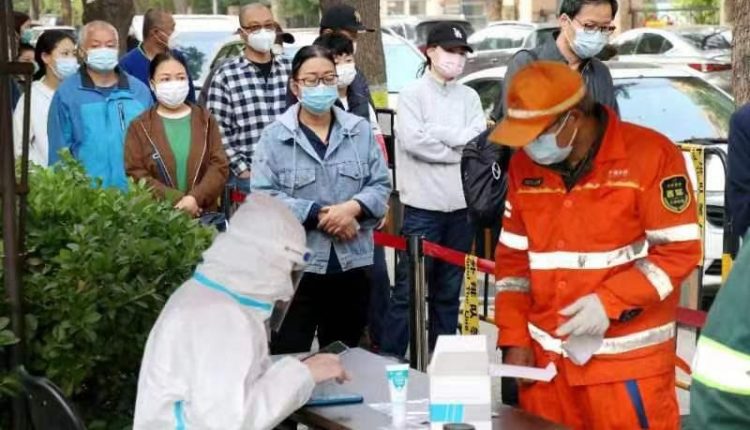Capital Beijing continued to tighten COVID controls as authorities term the situation as “severe and complex” even though new COVID-19 cases remain in double digits only while Shanghai continued its lockdown despite a decline in cases.
As per new norms in Beijing, from May 12, residents entering public venues such as government buildings, supermarkets, shopping malls, hotels and restaurants are required to provide 48-hour nucleic acid negative testing certificates. Restaurant dining remains banned while schools will remain online till further notice. Public venues, activities, entertainment venues etc. remain closed. Mass COVID testing will continue. Many localities in capital city have been locked down, several parks have been closed and public transport remains suspended in most affected areas. The latest round of the outbreak in Beijing has recorded a total of 777 infections since April 22, involving 15 districts.
Shanghai, China’s biggest commercial city, is still in a prolonged lockdown as new symptomatic Covid-19 cases bounced back in Shanghai, prompting local authorities to double down on curbs to prevent a resurgence of the outbreak even as total new infections edged down. Shanghai’s cumulative cases crossed 600000 since the outbreak began on March 1 while death tally reached to 553. The city recorded 234 local confirmed cases and 2,780 asymptomatic infections on Mon.
State media reported that provinces around Shanghai have stepped up COVID controls after they reported spillover cases from Shanghai. Authorities have put lockdowns in many nearby cities.
China’s adherence to a stringent zero-Covid policy has weighed heavily on its economy with the Chinese Premier Li Keqiang warning about a “complicated and grave” employment situation caused by sweeping lockdowns to contain Covid outbreaks which sent stock markets plunging.
A survey released on Monday by US Chamber of Commerce in China show growing dissatisfaction with authorities’ handling of the outbreak, echoing complaints from European firms which say the country is losing its lustre as an investment destination. Vice Premier Hu Chunhua called for active efforts to stabilize foreign trade and investment and actions to stabilize existing foreign firms.
China’s export growth rate dropped to a 21-month low of 3.9 percent in April, depicting the challenges posed by COVID-19 outbreaks in multiple cities that weighed on production and logistics as well as weakening global demand due to the lingering pandemic, according to data released by the Chinese customs showed on Monday.


Comments are closed.